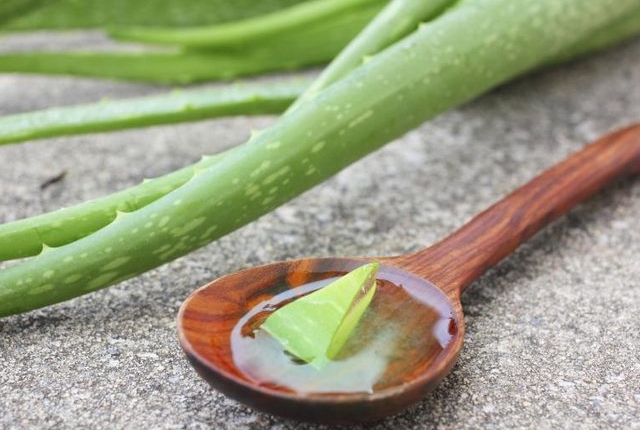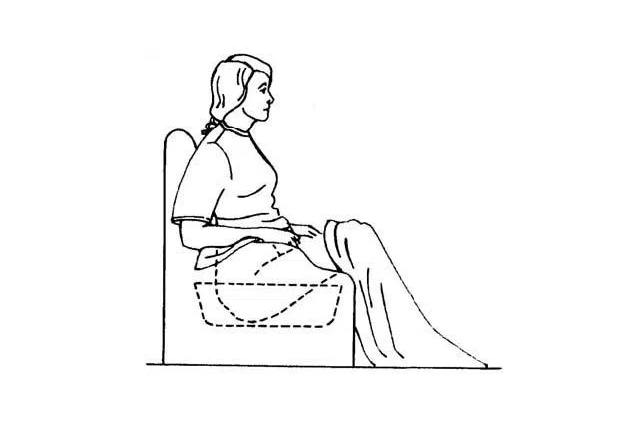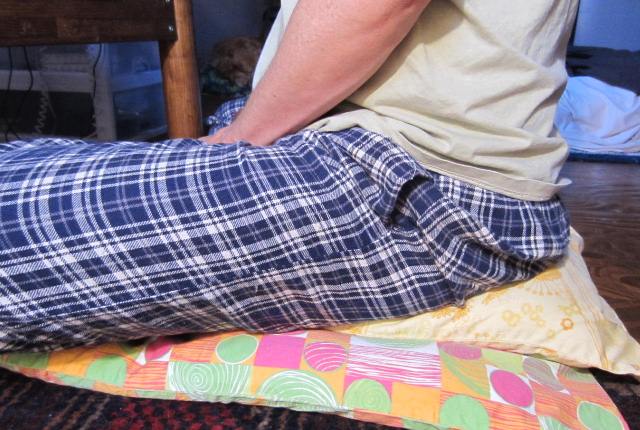An anal fissure can be a very painful condition. It is an injury in the skin surrounding the anus, which is usually associated with constipation and other bowel disorders, and is most commonly found among adults.
It also causes rectal bleeding in infants if they are suffering from these conditions. It causes sharp pain when you are trying to pass stools, and becomes worse if you are constipated.
You may even bleed as the tear gets rubbed by the hard stools. You may feel an urge to itch the affected area. The condition gets worse if infected further by faeces. Any stretching of this area can result in worsening of the condition and can cause severe discomfort. It is very easy to treat and prevent anal fissures by regulating your diet intake. These home remedies will help you to achieve your purpose easily.
13 Effective Home Remedies For Anal Fissure
1. Hot And Cold Fomentations
Hot and cold fomentations are beneficial in treating anal fissures effectively. Take a piece of clean, soft cloth and soak it in hot water. Wring and apply on the affected area for a few minutes. Repeat it three times, and then follow with the same application once with cold water. You should follow three hot fomentations with one cold fomentation.
2. Olive Oil
A gentle instillation of olive oil into the rectum is an effective home remedy to treat anal fissures. You need to use around 50 ml of olive oil at a time. Repeat it daily whenever required, as it will help to soften the hard stools. This prevents further aggravation of the injury and helps heal the fissure quickly.
3. Petroleum Jelly
Anal fissures are very painful, and hard stools worsen the condition, causing even more pain. This may even result in bleeding. Therefore, using lubrication when you are going to toilet helps to prevent any such injury. Apply some petroleum jelly into your rectum every time you are going to pass stools.
4. Aloe Vera
Aloe vera is very soothing and possesses anti-inflammatory properties, which are very beneficial in treating anal fissures at home. You can directly apply some aloe vera gel or ointment on the affected area three to four times a day. This will help heal the pain and infection. Another effective method is the use of aloe vera compress on the anus. Aloe compresses will provide a lot of comfort from the painful symptoms and help heal the injury faster.
5. Sitz Bath Treatments
Sitz baths are one of the most effective and easy home remedies that help reduce the pain due to anal fissures. After having a bowel movement, you can sit in a tub filled with warm water for around fifteen minutes. This will reduce the pain in the affected area. Wipe dry with a very soft towel afterwards.
6. Wheat Germ Oil
Wheat germ oil helps in quick healing of the anal fissures, and is a very effective home remedy for this treatment. Just apply a little wheat germ oil all over the affected area and leave it on for half an hour. Wipe dry with a soft and wet tissue after this duration. This application should be done at least twice a day.
Also Read:
Top 6 Beneficial Home Remedies For Anal Fissure
5 Natural Cures For Anal Fissures
5 Effective Herbal Remedies For Anal Fissure
7. Laxatives
If you are severely constipated, the hard stools and strain during bowel movements will cause further harm to your condition by tearing the anal fissures further. You can use some laxatives to soften the stools. This will allow a totally painless bowel movement. Do consult your doctor before using any laxative.
8. Use A Pillow
When you have an anal fissure, sitting can be very painful, especially if the surface is hard. You can use a soft pillow to sit on as it will put less pressure and help alleviate the pain. A variety of specially made pillows are available for people suffering from this problem. You can get a liquid filled pillow, doughnut shaped pillow, or a kind that suits you the best.
9. Maintain Hygiene
It is important to keep the affected area clean and dry if you have an anal fissure. Moisture in this area can cause bacterial infections to set in, and it takes longer to heal. Therefore, wipe the area with a soft toilet paper. Do not use rough ones as they may open up the sores. Scented and colored toilet papers should be completely avoided. Instead, you can use soft facial tissues. After a bath or bowel movement, use some baby powder to gently dab around the affected area. This will keep the area dry and prevent infections.
10. Fasting On Fruits
If you have an anal fissure, drinking fruit juices will be very beneficial for you. It will help to keep the bowel movement smooth. Drink a glass of fruit juice every two hours. You can also eat plenty of fresh fruits, such as apple, pineapple, grapes, papayas, mangoes, and oranges. This will put fewer burdens on your digestive system and prevent constipation.
11. Fibre Intake
Anal fissures are often seen in people suffering from constipation problems. Eat food rich in natural fibres to avoid this condition. Whole grains, beans, green leafy vegetables, carrots, figs, raisins and dates, prunes, etc are some of the best foods you can include in your daily diet. Fibre helps to increase volume and soften the stools, thus preventing constipation. Soft stools will put less pressure on the anal fissures, thus easing pain.
12. Avoid Constipating Foods
Avoid foods made with refined flours, such as cakes, pastries, white bread and biscuits. White rice and sugary food items should also be avoided as they can cause constipation. Milk and milk products can cause diarhhea in some people, and this condition can also aggravate the pain in the anal fissures.
13. Drink Plenty Of Water
Drinking plenty of water will make the stools softer and aid in digestion. This will prevent constipation, which will be beneficial in the treatment of anal fissures. Water also helps to remove harmful toxins in your body and clears out the infection effectively. However, avoid having water along with your meals. Drink water half an hour before or after your meals.
Caution: Please use Home Remedies after Proper Research and Guidance. You accept that you are following any advice at your own risk and will properly research or consult healthcare professional.














